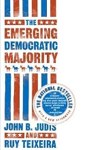John Gruber, who writes primarily about Apple, has a long series of posts about jackassery in the press. Though the term simply means “a male donkey”, Gruber reserves it for a very specific transgression, which I believe is something like this: you are a jackass if you argue not on the facts, but rather on whatever position serves your immediate interests. The most common interest is sensationalism — selling magazines, trolling for web hits.
Nicholas Carr’s piece on “Who killed the blogosphere?”, which appears on his blog, needs a bridle and a pack saddle.
While there continue to be many blogs, including a lot of very good ones, it seems to me that one would be hard pressed to make the case that there's still a "blogosphere." That vast, free-wheeling, and surprisingly intimate forum where individual writers shared their observations, thoughts, and arguments outside the bounds of the traditional media is gone. Almost all of the popular blogs today are commercial ventures with teams of writers, aggressive ad-sales operations, bloated sites, and strategies of self-linking. Some are good, some are boring, but to argue that they're part of a "blogosphere" that is distinguishable from the "mainstream media" seems more and more like an act of nostalgia, if not self-delusion.
This gets lots of attention. I’m giving him more. But it’s obviously and hopelessly wrong.
First, it’s trivial to distinguish the blogosphere from mainstream media. If the blog wouldn't exist without the backing of a vast corporation, it’s mainstream media. Otherwise, it’s a blog. (Some blogs happen to be sponsored or under the aegis of a corporation, but you know that if the corporation vanished the blog would be pretty much the same. Contrast the Times, or the AP, or The New Yorker: big employers, significant physical plants, millions of dollars of assets.)
Second, the natural way to measure whether the blogosphere survives to examine it. Are there millions of weblogs? Yes. Are there links among them? Sure looks like it to me! Yes, lots of long-tail blogs have moved to FaceBook and MySpace; are social sites more or less conversational than Blogger-driven sites? Does Carr look at the data?
Carr wrote in 2005 that blogging was like amateur radio and he’s still flogging this line. But blogging has almost nothing in common with ham radio, which was (and is) chiefly a person-to-person medium, competing with the telephone and with skype. Blogging has tremendous influence: Drudge, kos, and Talking Points Memo were three of the key outlets of political discussion in the recent election. Pick up a good newspaper at any moment in the 2004 or 2008 campaign and, chances are, you’d find a story that was heavily influenced by Drudge. I can’t think of a single political story in which amateur radio played a big part. Ever. When ham radio gets into the news, it’s because some individual amateur received a distress call from some individual who couldn’t reach the pros.
Finally, Carr seems to think that a few million blogs with a typical readership of a few thousand readers doesn’t merit the name “blogosphere”. He suggests “blogipelago”. I kid you not.
And of course Carr doesn’t believe a word of what he writes, because he sure works hard to advertise his books on his blog. It’s topic? Cloud computing. Anyone surprised?







